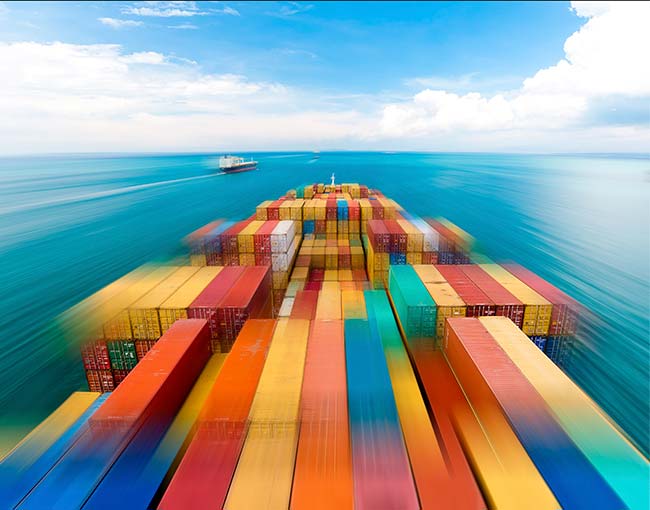Home > Insights > Publications > Shippers, are you ready for SOLAS’ verified container weight mandate?

Shippers, are you ready for SOLAS’ verified container weight mandate?
By Sean McGowan, Warren Dean, and Jonathan Benner
Do you export your goods in an ocean-going cargo container? If so, are you ready for the SOLAS amendments that go into effect July 1? A little planning ahead of time will prevent your boxes from being left on the docks.
In November 2014, the Maritime Safety Committee (“MSC”) of the International Maritime Organization (“IMO”) adopted amendments to the International Convention for the Safety of Life at Sea (“SOLAS”) for the purpose of addressing the alleged failure of shippers of containerized cargo to provide carriers with accurate weights for loaded containers tendered for international transportation. The amendments, which become effective on July 1, 2016, require shippers of packed cargo containers (regardless of who packed the container) to ensure that the container’s “verified gross mass” (“VGM”) is stated in the shipping document. SOLAS also requires the shipping document to be: (1) signed by the shipper (or a person authorized by the shipper); and (2) submitted to the ocean carrier’s master and the port terminal representative prior to the container being loaded onto a ship. This VGM must be provided “sufficiently in advance, as required by the master or his/her representative, to be used in the preparation of the ship stowage plan.” If the VGM of the packed container is not provided and verified by the shipper, the carrier and terminal port are not permitted to load the container on the ship. In other words, the container with all of the shipper’s products will be left at the port, likely incurring demurrage charges, until the VGM is provided for the next scheduled sailing.
Methods for determining the VGM
There are two methods under the new SOLAS amendments for determining the VGM: (1) weigh the packed container using calibrated and certified equipment (e.g., use a weigh bridge and then subtract out the verified weight of the truck, chassis and fuel); or (2) weigh all packages and items within the container, including packaging, pallets, and securing materials, and add to that the tare weight of the container using calibrated and certified equipment. Both methods require the use of weighing equipment that is calibrated and certified by a competent authority in the State in which the container packing is completed. Estimates are not permitted.
Because these new SOLAS amendments go into effect on July 1, 2016, shippers that utilize cargo containers to export products (and import products from foreign vendors) must act now to ensure that they (or their foreign vendors) have procedures in place to avoid being left at the docks.
How will SOLAS be enforced, and penalties assessed?
The United States Coast Guard recently stated that neither it, nor any other federal agency, has the authority to apply SOLAS to domestic shippers. However, “the ships that bring U.S. exports to market are required, by their flag states (foreign governments), to comply with the SOLAS regulations.” Therefore, providing no VGM may halt the container on the pier while the ship, which was supposed to carry your container overseas, sails off onto the high seas. On the other hand, providing a false VGM may make the shipper liable for damages sustained by the carrier, if any, as a result of that false report.
Will VGM implementation be postponed?
All indications suggest that implementation of the SOLAS amendments will not be delayed or postponed. Indeed, as Rear Adm. Paul Thomas, commandant for U.S. Coast Guard prevention policy, recently wrote, a U.S. unilateral delay in the implementation of the SOLAS amendments would:
simply delay the implementation of the SOLAS requirements aboard ships flying the U.S. flag, not aboard the foreign flag ships that carry the vast majority of U.S. exports. In the face of a unilateral delay in implementation by the U.S., other nations – signatory to SOLAS - could not allow ships of their flag to load containers in the U.S. and still meet their treaty obligations. This would put U.S. cargo at a disadvantage.
What shippers should do now to prepare
- Consider whether you have (or have access to) the appropriate weighing equipment.
Consider contacting your state’s Department of Weights and Measures to determine if you have (or have access to) equipment that may be calibrated and certified by a competent authority in the State in which the packing of the container is to be completed.
-
Open the dialogue with your transportation partners.
-
Consult with your motor freight, ocean freight (VOCC, FF and NVOCCs), and port terminals to determine if they have (have access to) equipment that may be calibrated and certified by a competent State authority.
-
Review your transportation contracts (e.g., motor freight, ocean freight (VOCC, FF and NVOCCs)) to see if they need to be revised and amended to reflect who will conduct the actual weighing of the product and container on behalf of shipper and how the shipper will verify and relay that verified information to the carrier and port.
-
Consider contracting with third parties at the port or the terminal port itself so that the port may conduct the weighing of the container and provide the weight to the shipper for verification.
-
Review your insurance coverages to determine what, if any, additional coverage you will need to obtain to protect against damages caused by inaccurate VGMs.
If you haven’t considered how your shipping company is going to handle the SOLAS amendments and implement its weighing and verification requirements, now is the time to do so. July 1 is only three months away. It’s not too late to plan for how you will comply with SOLAS.
Sean McGowan, Warren Dean, and Jonathan Benner are all partners in Thompson Coburn’s International Commerce practice group.
